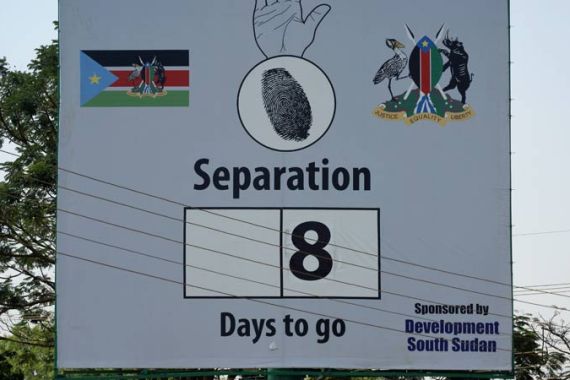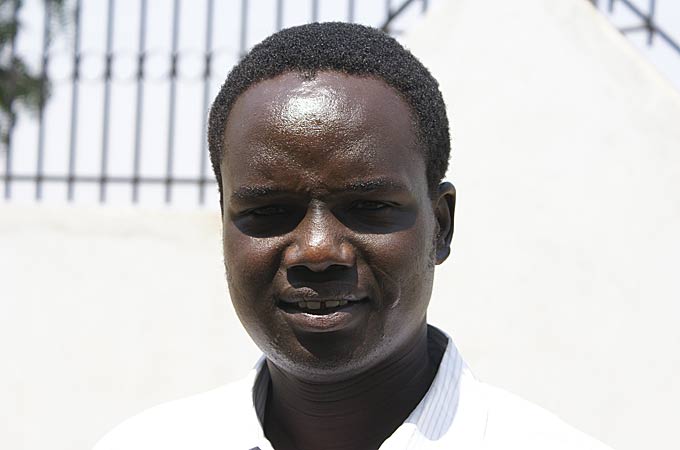New year sees hope for south Sudan
As south Sudan’s referendum on its future approaches, our correspondent finds most people optimistic about their future.

 |
| Jaba Ajang Bior, from south Sudan, says ‘we really need our independence’ [Ranjit Bhaskar] |
For people in the south of Sudan this could be their last New Year’s Eve as Sudanese.
If the south decides to separate from the north in the week-long referendum vote starting in eight days time, they will be living in a new country next year.
The historical significance of this Friday was not lost on the people here in Juba, the administrative capital of the south.
For them the separation was a given thing.
“In the new year we all hope to be better off than in the year past, with our new country and new system,” said Jaba Ajang Bior, a supervisor in a local bank.
“We really need our independence. The ninth of January is what we are focused about. The referendum is in the air everywhere. We breathe that air.
“We will soon be ourselves more than in the past six years of autonomy from the north,” said a visibly exited Bior.
No parade
Significantly, this time around southern Sudan will not be marking the Sudanese Independence Day anniversary that falls on the first day of the New Year that would have been marked by a military parade.
Instead, the southern security forces put up a noisy show of force in Juba by driving around town in police and military vehicles with blaring sirens.
However, there were quiet contemplations too.
People had started to trickle into the St Joseph’s church very early in the morning. Special prayers in Arabic and English were scheduled throughout the day.
With another year of relative peace behind them, the congregation had much to be happy about.
And the referendum was a significant part of the sermons in many a church.
“We need the freedom, the happiness we never had before,” said a parishioner who did not want to identified.
“I am hoping this new year that the south will be free. And we are hoping that for the people in Abeyi also,” he added, referring to the disputed region where a parallel referendum to choose between the south and the north has been put off for now.
‘Fighting is over’
There is also a practical side to this yearning for freedom.
“Everybody is expecting the economy to pick up. Faster, better business would mean better life for our people,” said Alhadi Essa, a Darfurian businessman and a Muslim.
Emphasising his affinity with fellow Africans of the south, he said religion is not an issue in the south. A statement vigorously seconded by Gabriel, a Dinka soldier who did not want to be identified by his second name.
“Our time has come, the fighting is over,” he said.
While the optimism of the people of southern Sudan is perceptible, the next few months will hold many a crucial test for the 2005 Comprehensive Peace Agreement [CPA] which brought to an end a devastating 22-year civil war which left two million people dead and double that number homeless.
With the CPA set to expire on July 9, the north and the south would have very little time to agree upon the practical issues of how to separate.
If the issues are not solved by then, the new year would soon loose its potent charm.